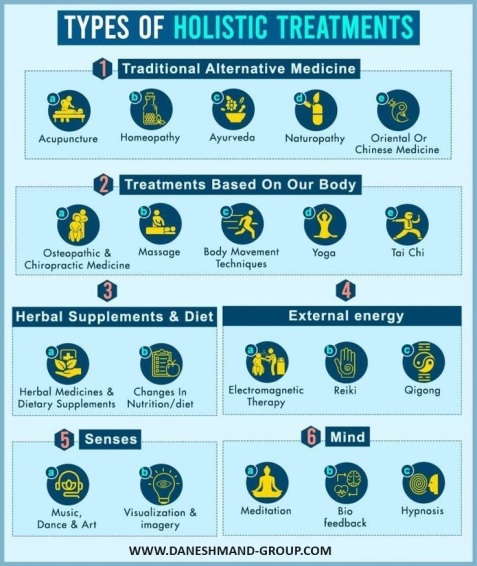Daneshmand Consulting Group

HOLISTIC TREATMENTS
Alternative medicine, often referred to as complementary or integrative medicine, encompasses a diverse array of practices that fall outside the realm of conventional Western medicine. As individuals increasingly seek holistic approaches to health and well-being, alternative medicine has gained prominence as a complement or alternative to traditional medical treatments.
The Diversity of Alternative Medicine:
One of the defining features of alternative medicine is its diversity. Practices range from ancient traditions like acupuncture and herbal medicine to more recent innovations such as biofeedback and energy healing. Each approach has its own underlying philosophy and set of principles, often rooted in cultural or historical contexts.
Holistic Approach:
At the core of many alternative medicine practices is a holistic approach that considers the interconnectedness of mind, body, and spirit. Unlike the reductionist approach of conventional medicine, which often focuses on treating specific symptoms or diseases, alternative medicine often seeks to address the underlying causes of health issues and promote overall well-being.
Acupuncture and Traditional Chinese Medicine:
Acupuncture, an integral part of Traditional Chinese Medicine (TCM), involves the insertion of thin needles into specific points on the body to stimulate energy flow or Qi. TCM, with its roots dating back thousands of years, emphasizes balance and harmony within the body to maintain health. Practices like herbal medicine and tai chi are also key components of TCM.
Ayurveda:
Originating in ancient India, Ayurveda is a holistic healing system that focuses on balancing the body's three doshas—Vata, Pitta, and Kapha. Ayurvedic practices include herbal remedies, dietaryguidelines, and various therapies to promote harmony and prevent illness Challenges and Controversies.
